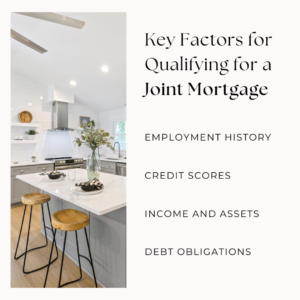
Are you a self-employed professional dreaming of buying a home but worried your tax returns will hold you back? If so, you’re not alone. Many self-employed buyers feel like the traditional mortgage system isn’t designed for them.
However, the good news is that qualifying for a mortgage without tax returns is possible, and it’s easier than you might think.
In this post, we’ll break down the top mistakes self-employed buyers make, share expert tips to improve your chances of approval, and reveal a game-changing solution that could help you get into your dream home faster. Let’s dive in!
Section 1: Common Mistakes Self-Employed Buyers Make
1. Underreporting Income to Save on Taxes
First and foremost, it’s tempting to write off expenses and minimize taxable income. However, lenders use your **taxable income** to determine how much you can borrow. As a result, if your income looks too low on paper, you might not qualify for the mortgage you need.
**Pro Tip**: To avoid this, work with your accountant to balance tax savings with mortgage eligibility.
2. Carrying Too Much Debt
Another common mistake is carrying too much debt. Specifically, lenders look at your **debt-to-income ratio (DTI)** to assess affordability. Therefore, high business or personal debt can hurt your chances of approval.
**Pro Tip**: To improve your DTI, pay down debts before applying for a mortgage. Even small reductions can make a big difference.
3. Not Planning Ahead
Finally, many self-employed buyers fail to plan ahead. For instance, most lenders require **at least two years of income reported on your taxes** to qualify. Consequently, if you’re just starting out or haven’t filed your taxes properly, this can be a major roadblock.
**Pro Tip**: Start preparing early by organizing your financial records and filing taxes on time.
Section 2: The Game-Changing Solution for Self-Employed Buyers
Now, here’s the secret many self-employed buyers don’t know: **alternative lenders** can qualify you for a mortgage using just **6-12 months of bank statements**. Importantly, no tax returns are needed, but your taxes must be **up to date and filed**.
This option is a game-changer for self-employed professionals who:
– Have fluctuating income.
– Write off a lot of expenses.
– Don’t want to wait years to qualify.
How It Works:
Instead of focusing on taxable income, alternative lenders analyze your **cash flow**. By reviewing your bank statements, they can assess your ability to repay the mortgage, making it easier for self-employed buyers to get approved.
Section 3: Tips to Improve Your Chances of Approval
1. Keep Your Taxes Up to Date: Even if you’re using bank statements, lenders want to see that your taxes are filed.
2. Maintain Strong Credit: In addition to income, a good credit score can open doors to better rates and terms.
3. Work with a Mortgage Broker: Finally, a broker who understands self-employed borrowers can help you navigate the process and find the right lender.
Conclusion:
In conclusion, buying a home as a self-employed professional doesn’t have to be a distant dream. By avoiding common mistakes, preparing your finances, and exploring alternative lending options, you can qualify for a mortgage faster than you think.
Ready to take the next step? Book a **free consultation** with me today, and let’s create a plan to make your homeownership dreams a reality.
